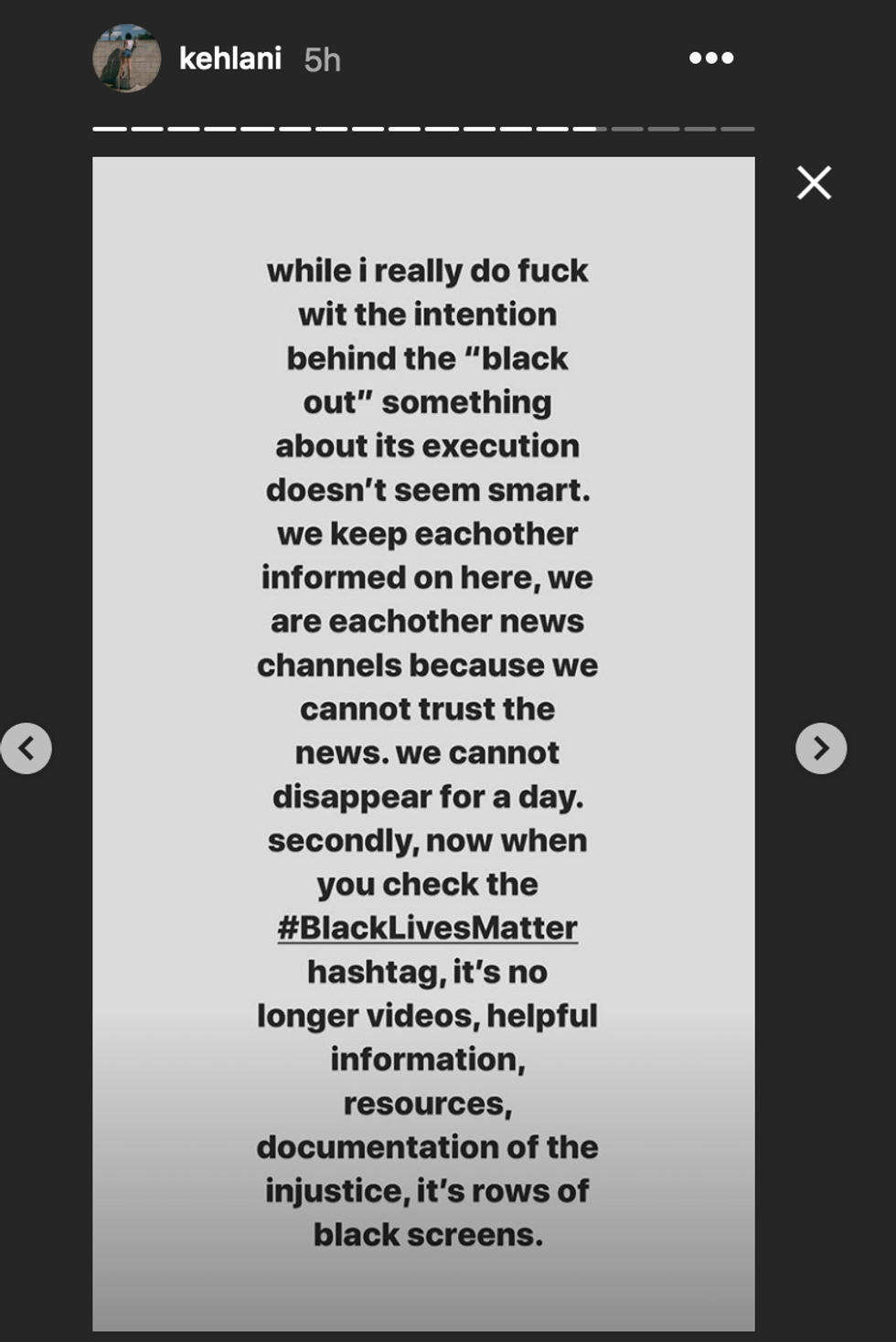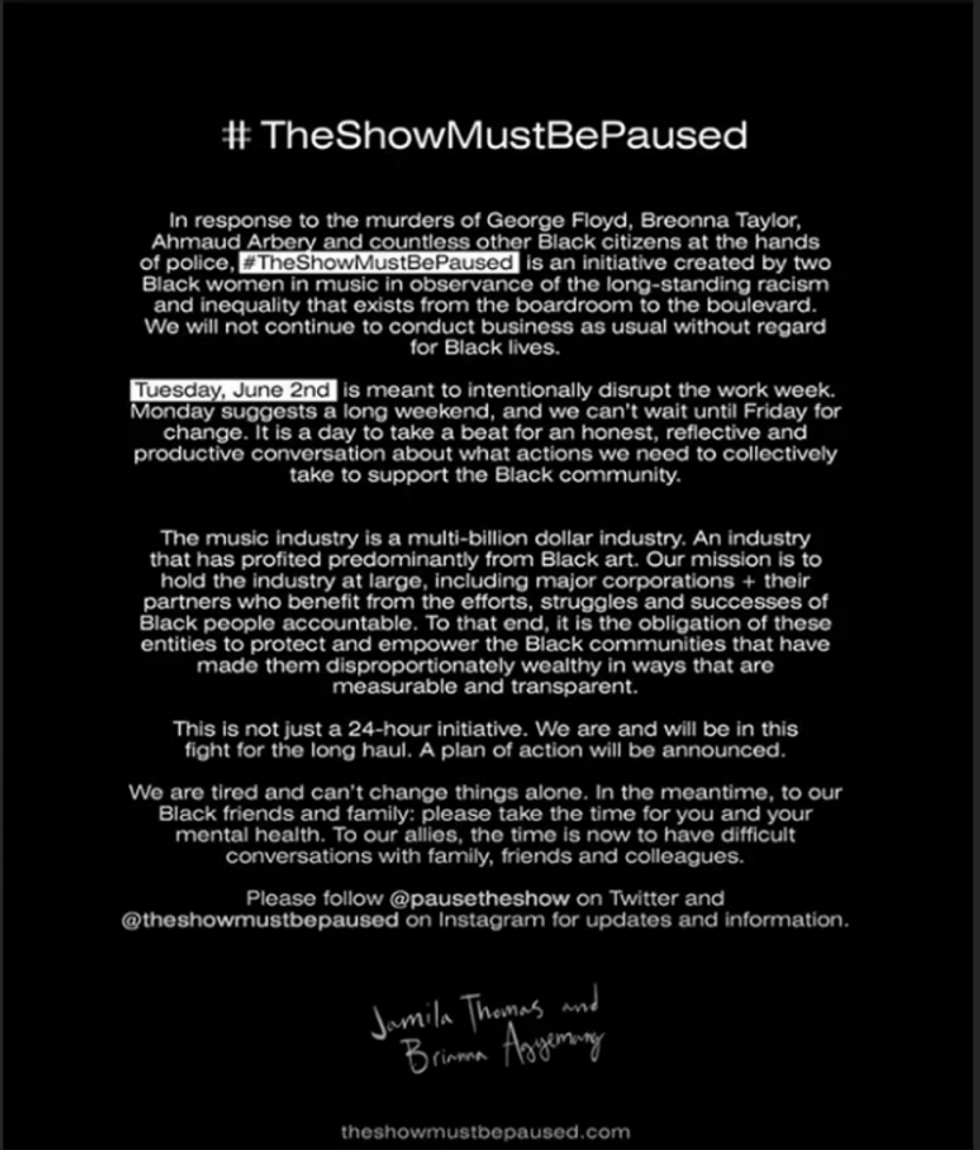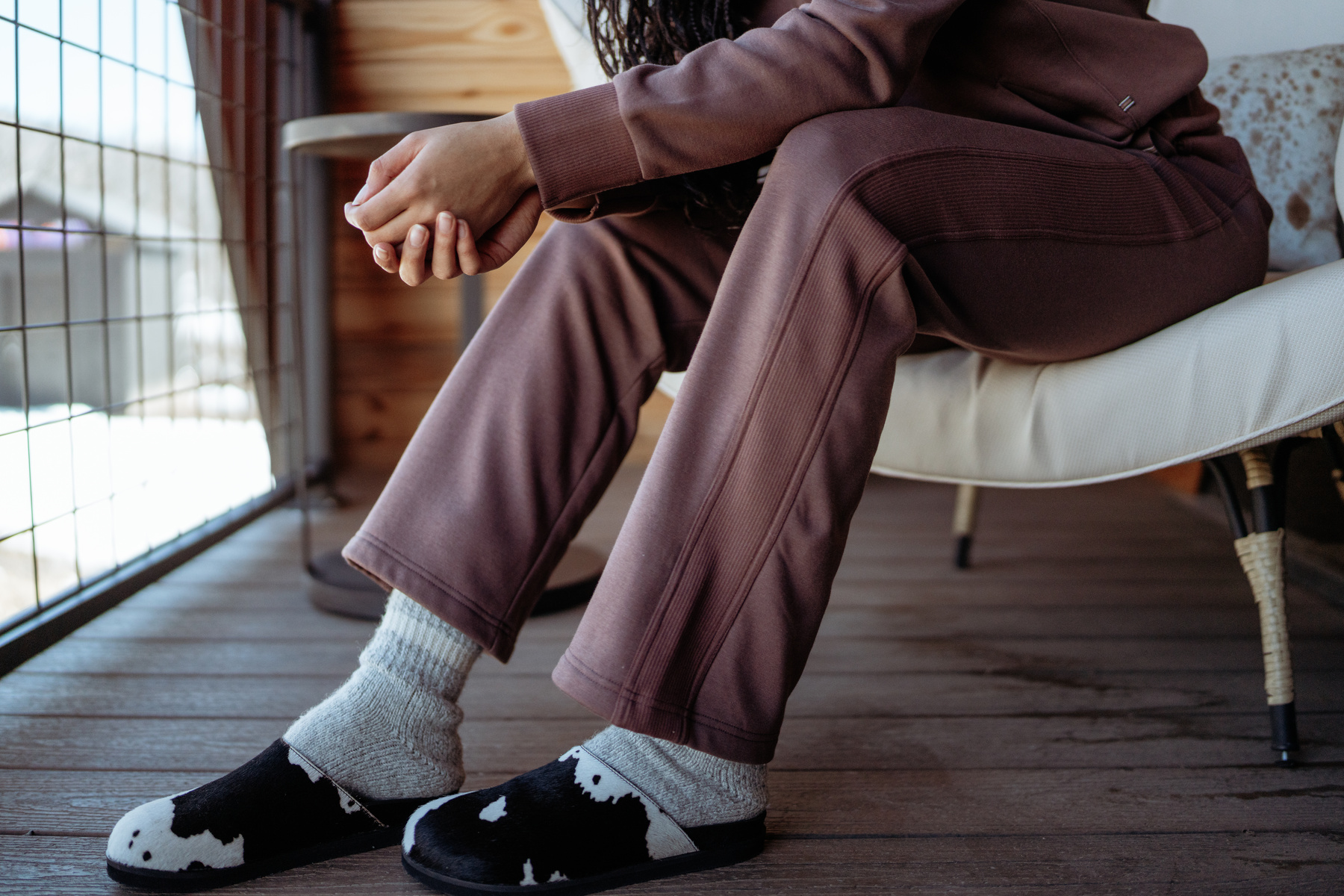CULTURE
Why You Should Reconsider Posting a Black Square on Social Media for #BlackOutTuesday
02 Jun, 20

#BlackOutTuesday
As protests against racist police brutality continue across the United States and the world in the wake of the brutal murder of George Floyd, many people are taking to social media to share their support for the Black Lives Matter movement.
Posts shared across Instagram, Twitter, and Facebook include information on how to help protestors, how to financially contribute to black-led organizations, how to protest safely in the face of police force, and how to be a better ally to the black community. Much of this is vital information that shows how helpful social media can be when harnessed for good.
Today, in another supposed show of support with the Black Lives Matter movement, a #BlackOutTuesday hashtag has begun to spread, particularly on Instagram. The hashtag is posted in combination with an entirely black square. Here is an example:
In theory, the idea is to so thoroughly occupy Instagram with this lack of content, as to make the movement impossible to ignore. Unfortunately, many black-identifying people of color have pointed out the folly of this hashtag. Notably, the danger of using the #BlackLivesMatter hashtag in combination with these posts buries vital information and activist posts that are exponentially more beneficial to the movement than an empty black square. Layla F. Saad, the best-selling author of Me and White Supremacy, posted the below video with the caption, “Hi all. For those taking part in the black out posts, please don’t use the blacklivesmatter hashtag as it is actually muting/silencing this hashtag and important information that is being shared under that hashtag. Instead use #blackouttuesday. Thank you @ginaatinukeknight for this heads up.”
Some are even questioning the intention of the hashtag, like singer-songwriter Kehlani, who posted on her Instagram story, “while i really do f*ck wit the intention behind the ‘black out’ something about its execution doesn’t seem smart. we keep each other informed on here, we are each other [sic] news channels because we cannot trust the news. we cannot disappear for a day. secondly, now when you check the #BlackLivesmatter hashtag, it’s no longer videos, helpful information, resources, documentation of the injustice, it’s rows of black screens.”

Supposedly, the original initiative was a music industry movement called #TheShowMustBePaused started by WOC music executives Jamila Thomas and Brianna Agyemang. According to The BBC, “All three major record labels have shared a message on social media promising ‘a day to disconnect from work and reconnect with our community.’ Employees have been given Tuesday off as ‘a day of action,’ intended to ‘provoke accountability and change.'”

Many artists jumped on board, including Lady Gaga, who said, “[President Trump] holds the most powerful office in the world, yet offers nothing but ignorance and prejudice while black lives continue to be taken,” she wrote. “He is fueling a system that is already rooted in racism, and racist activity, and we can all see what is happening.”
But how exactly #TheShowMustBePaused became #BlackOutTuesday is unclear, but seeing as it does not seem to have been started by a BIPOC lead organization or BIPOC leader, it is our (white people’s, in particular) responsibility to question it before participating. For one thing, simply posting a black square to Instagram is an incredibly easy action, even easier than reposting information or otherwise amplifying the voices of POC through social media. Before participating, ask yourself if you have decided to post your black square simply to assuage your white guilt/feel like you’re helping, or because you’ve genuinely been led to believe (by a POC) that your action is helpful to the movement. Instead of posting a black square, could you be taking more tangible steps? Could you be posting information for protestors, or suggestions of places to donate? Could you be holding yourself accountable for past racist actions? Could you be educating yourself on your self-privilege? One also has to see how suspiciously close to censorship this action seems on the day after President Trump threatened the lives of protestors. Is now really the time to be quiet and remove ourselves from social media, or is it a time to be louder than ever?
If you do decide to participate in #BlackOutTuesday, at the very least, make sure you aren’t using the #BlackLivesMatter hashtag, and as always, look to the leadership of POC before participating in any action, online or otherwise. Also, if you’re white, consider giving the below post a thorough read.
- What We Know About the “D.C. Blackout” So Far – Popdust ›
- Record Labels Announce a “Music Industry Black Out” – Popdust ›













